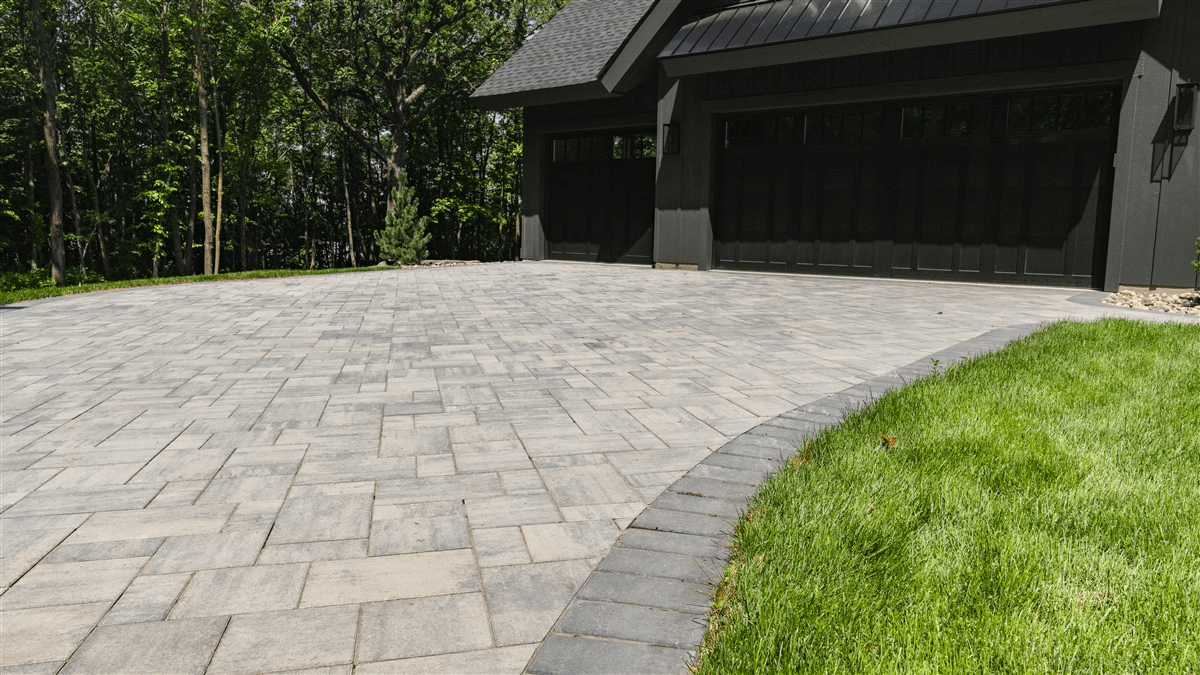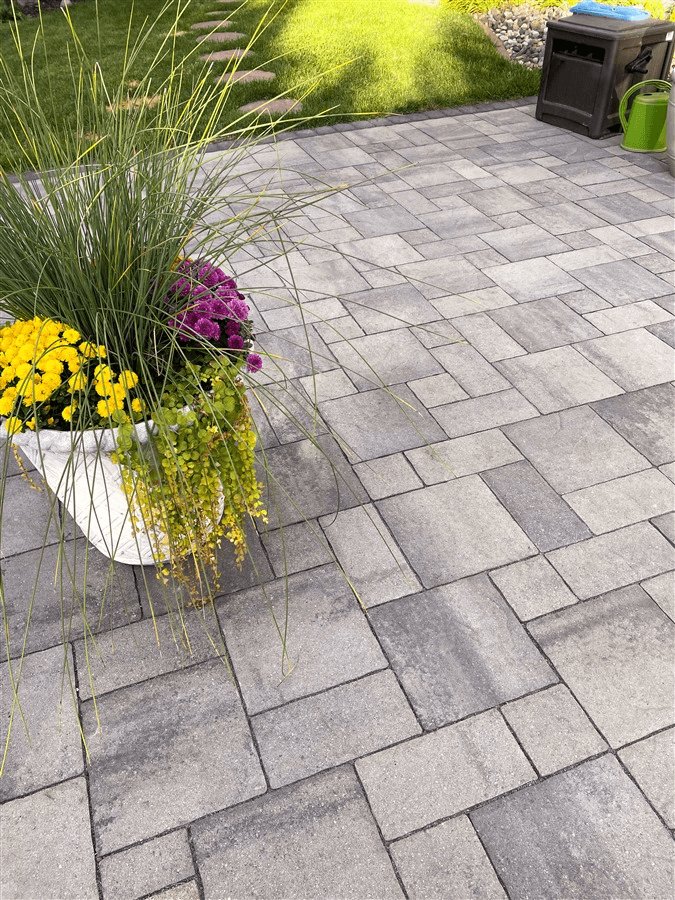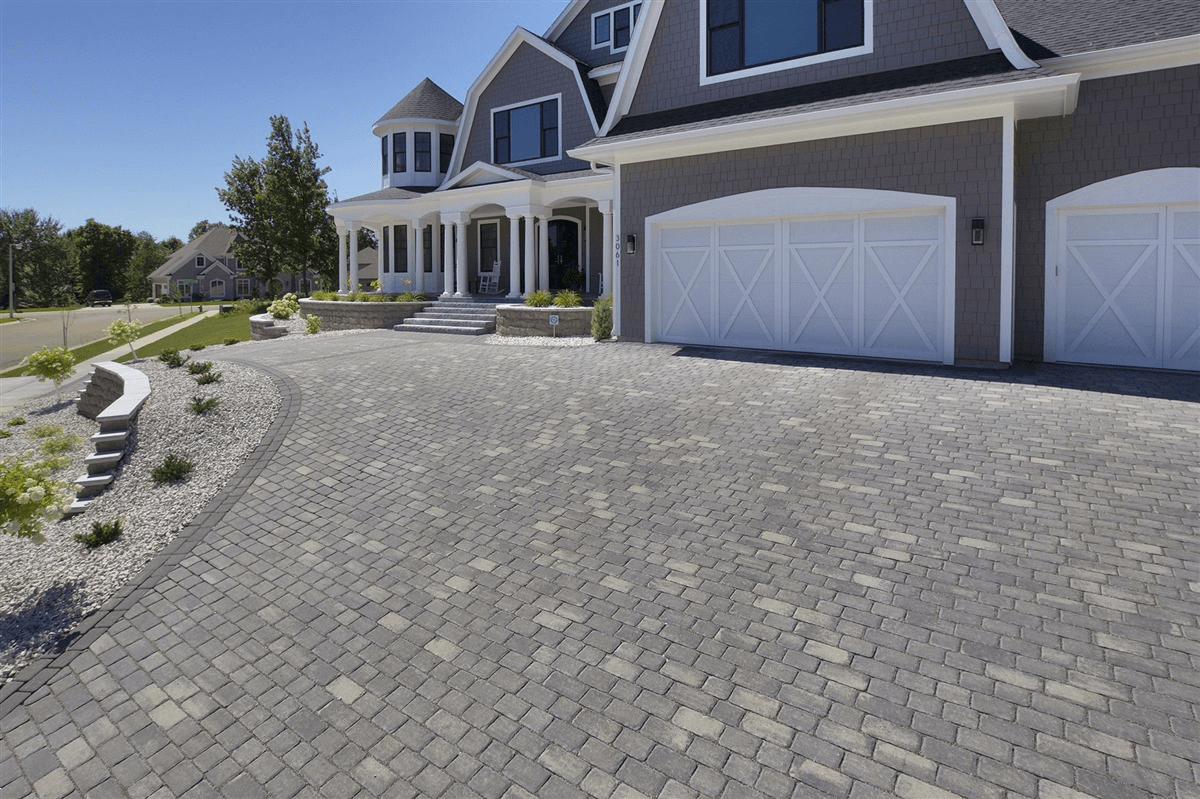After completing your paver patio, driveway, or any hardscape project with concrete pavers, a common question arises: Should you seal your pavers?
While most outdoor paver surfaces can benefit from sealing, it isn’t always required immediately—and in some cases, it may not be necessary at all. The decision depends on factors like location, foot traffic, climate, and the aesthetic goals for your outdoor space.In this guide, we’ll explain what paver sealant is, weigh the pros and cons of sealing, and explore the different types of sealers available—helping you make an informed choice for your paver installation.
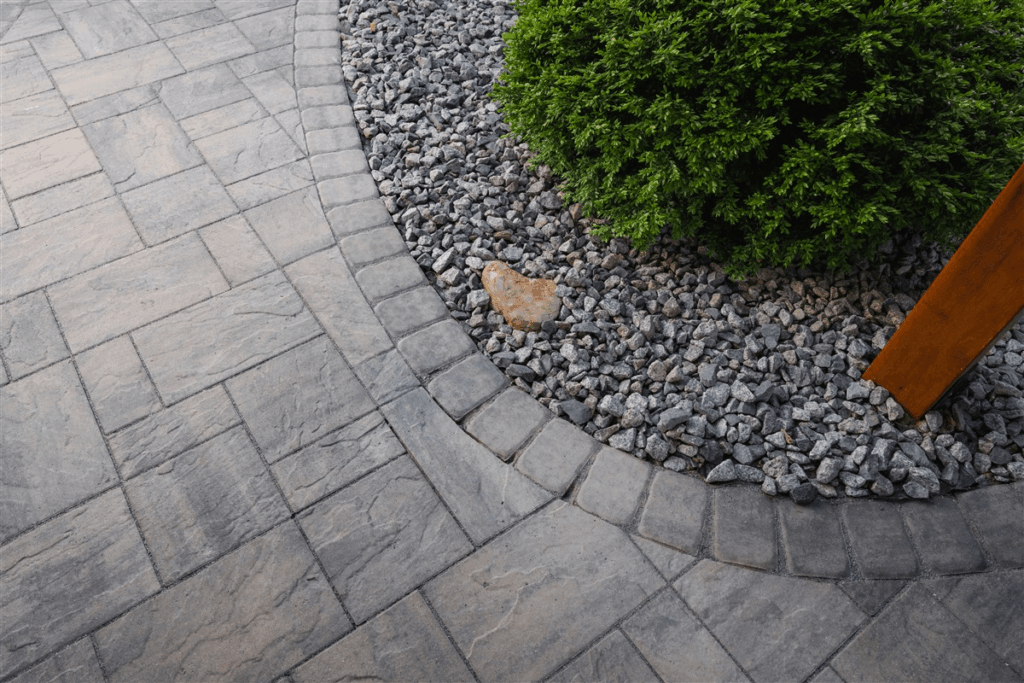
What is Paver Sealant?
Paver sealant is a protective coating applied to surfaces such as concrete pavers, brick pavers, and natural stone. Its main purposes are to enhance durability, protect against stains and weather damage, and improve the overall appearance of your hardscape.
Sealants either penetrate the paver surface or form a protective layer on top, creating a barrier that repels water, oil, and other contaminants. This helps maintain the color and finish of your pavers while making routine cleaning and pressure washing easier. In many cases, sealing can also reduce the growth of weeds, moss, or algae between pavers.
Ultimately, a properly applied sealant can extend the life of your pavers, preserving their color, texture, and structural integrity for years to come.
Types of Paver Sealers
There are several main types of paver sealers available, each with unique properties and advantages. Choosing the right sealer depends on your priorities—whether that’s color enhancement, durability, environmental impact, or the desired surface finish.
Solvent-Based Sealers
- Penetrate deeply and offer high durability
- Excellent resistance to oil, grease, water, and UV rays
- Typically provide a glossy or satin finish
- Commonly used for driveways and high-traffic areas
- Strong odor and higher VOC content
Water-Based Sealers
- Eco-friendly option with low VOCs
- Easy to apply and clean up
- Available in natural matte or low-gloss finishes
- Ideal for patios and residential areas
- Shorter lifespan compared to solvent-based sealers
Polyurethane Sealers
- Maximum durability and chemical resistance
- Best for driveways and commercial applications
- Usually solvent-based with a high-gloss finish
- Can darken the color of your pavers
Penetrating Sealers (Impregnating)
- Absorb into the paver surface without changing its appearance
- Long-lasting protection against water, oil, and salt
- Typically water-based and breathable
- Excellent for natural stone or textured pavers
Acrylic Sealers
- Versatile and easy to apply
- Available in both water- and solvent-based formulas
- Enhance color while providing a protective film
- Moderate durability, ideal for patios or walkways
Epoxy Sealers
- Extremely tough, chemical- and abrasion-resistant
- Typically, a two-part system that requires mixing
- Produces a glossy, high-build finish
- Less common in residential applications due to complexity
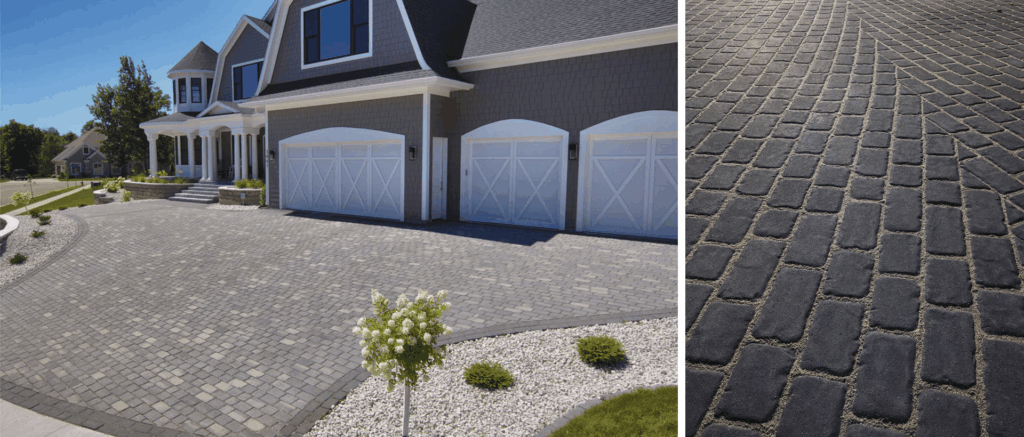
Paver Sealant Pros and Cons
Sealing your pavers isn’t always required, but it can provide several benefits—and a few potential drawbacks. Understanding the pros and cons will help you decide whether sealing is the right choice for your project.
Benefits of Paver Sealing
1. Protection Against Stains
A quality sealer creates a barrier that prevents oil, grease, dirt, and other spills from penetrating your paver surfaces, keeping your patio or driveway looking clean and fresh.
2. Enhanced Color and Curb Appeal
Sealers enhance the natural color and texture of pavers, giving your outdoor space a richer, more polished appearance. This is especially noticeable on faded or lighter-colored concrete pavers..
3. Increased Durability and Weather Resistance
Sealing helps protect your pavers from UV damage, freeze-thaw cycles, and moisture infiltration, extending the lifespan of your patio, driveway, or walkway.
4. Weed and Moss Prevention
By sealing the joints between pavers, you can reduce the growth of weeds, moss, and algae—particularly in shaded or damp areas.
5. Easier Cleaning and Maintenance
Sealed pavers resist staining and are easier to clean. Sweeping, hosing off, or pressure washing becomes simpler, saving time and long-term maintenance costs.
Drawbacks of Paver Sealing
1. Slippery When Wet
High-gloss sealers can create a slick surface when wet, which may pose a safety risk near pools, steps, or other frequently walked areas.
2. Trapped Moisture & Efflorescence Risk
Sealing can prevent moisture from naturally evaporating through the pavers. If applied too soon after installation or over a damp base, it may lead to efflorescence—a white, chalky residue on the surface.
3. Possible Color Change or Discoloration
Some sealants, especially solvent-based or glossy options, can darken or alter the appearance of pavers. Using an incompatible product may also result in uneven color or blotching.
4. Requires Reapplication
Most paver sealers need to be reapplied every 3–5 years, depending on foot traffic and weather exposure, adding ongoing maintenance costs.
5. Hard to Remove
Once applied, sealers—particularly solvent- or epoxy-based types—can be difficult to remove and often require professional-grade stripping products.
So—Should You Seal Your Pavers?
There’s no one-size-fits-all answer, but here’s a quick guide to help you decide:
Seal Your Pavers If:
- You want to enhance the color and overall appearance of your pavers.
- The surface is exposed to frequent spills, such as driveways or outdoor kitchens.
- You want to minimize weed growth and simplify maintenance.
- You live in a region with freeze-thaw cycles or heavy rainfall.
- You’re comfortable with periodic reapplication every few years.
You Might Skip Sealing If:
- You prefer a natural, matte look for your pavers.
- The area experiences low foot or vehicle traffic.
- You’re using high-quality color-through pavers in shaded or covered areas.
- You want to avoid the cost or commitment of future reapplications.
Ultimately, sealing pavers is a personal choice based on aesthetics, protection, and maintenance preferences. With the right approach, you can keep your paver surfaces looking beautiful and lasting for years to come.


